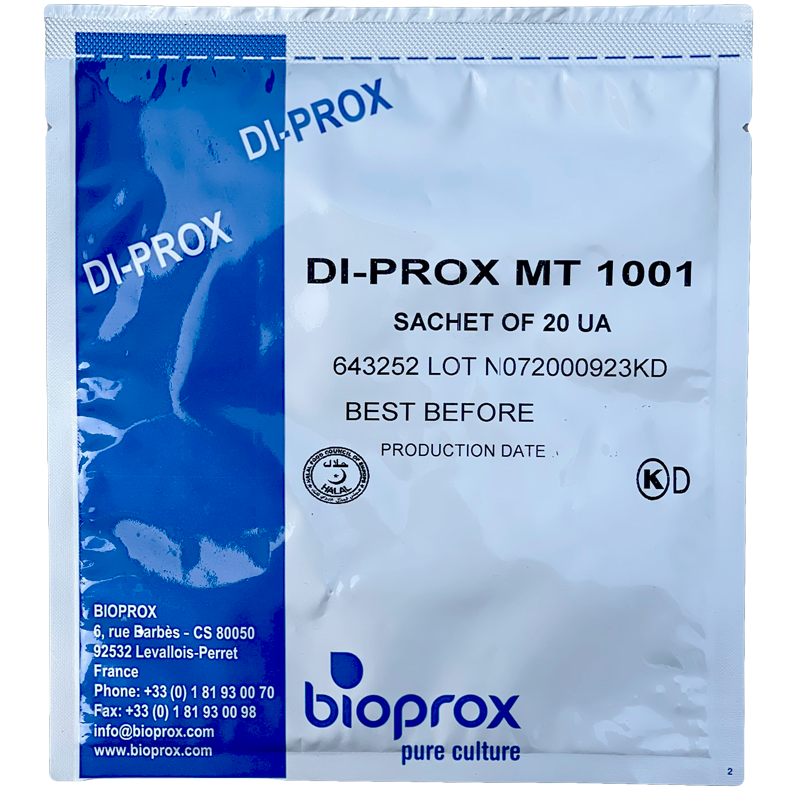Dosage and pack size
- Large size (20UA in foil sachet) will inoculate 600 to 2,000 litres of milk depending on dosage used.
- Small size (5UA screw cap bottle which is 1/4 of a large pack) will inoculate 150 to 500 litres of milk depending on dosage used.
- An approximate guide for usage is 1 Dash mini spoon or 1/8th spoon to 8 litres of milk.
Types of Cheese MT1001 can be used on
Traditional Cheddar, Farmhouse Cheddar, Stirred Curd Cheddar, English acid styles, UK territorial styles, Colby, Brick, Jack, Farmers, Cottage cheese, white cheese, Continental cheese, milled curd, washed curd styles.
Description
MT1001 and MA4001 are the same cultures but manufactured by different companies.
MT1001 is a mix of four different strains of mesophilic cultures:
- Lactococcus lactis subsp. Lactis
- Lactococcus lactis subsp. Cremoris
- Lactococcus lactis ssp Lactis biovar. Diacetylactis
- Streptococcus thermophilus
It is a very diverse culture that can be used across many styles of cheese. It is one of the most popular of all the starter cultures.
MT1001 produces medium carbon dioxide gas production, medium levels diacetyl (buttery flavour) and medium citrate fermentation.
Its primary functions are three-fold, to produce lactic acid to acidify the milk, releases quite a lot of flavour and to produce eyes or small holes in the cheese.
The Streptococcus thermophilus (Thermophile) has an important role. When the curds and whey temperature reaches between 38°C – 42°C for these recipes (the mesophile cultures become dormant and do not produce acid at that heat level, they do not die out until approximately 45°C is reached).
But 38°C – 45°C is an ideal temperature for acid production by the Streptococcus thermophilus culture in MT1001. In some cheese the cook step can be at 38°C – 45°C for two hours. The high temperature cook step is important for moisture expulsion from the curd but that is a lot of time to not have a mesophile culture not producing acid.
As the curds become cooler at the hooping or pressing steps, the mesophilic starters in the MT1001 come back to life to produce more acid. A great combination of starter cultures.
The 3 out of 5 rating for acid production is important where over acidification is a problem.
- Flavour profile: 4 out 5
- Acid production: 3 out 5
- Resistance to bacteriophage: 5 out 5

